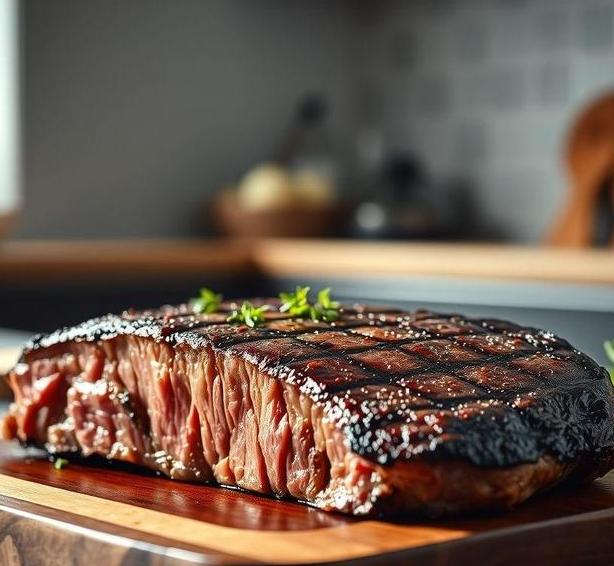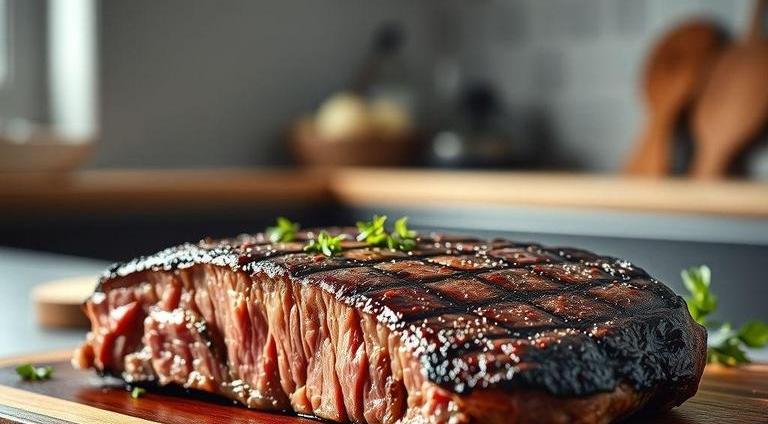We’ve all been there: you make a big batch of roast chicken, grill some steaks, or cook up a delicious pot roast, and suddenly you find yourself with leftover cooked meat. The question always looms: How long can I keep this cooked meat before it goes bad? Is it safe to eat days later, or should I toss it out to avoid any potential foodborne illness? Knowing how to properly handle and store cooked meat is essential, both for safety and for keeping your food tasting as fresh as possible. Let’s dive into everything you need to know to ensure your leftovers stay safe and appetizing.
Can Cooked Meat Go Bad?
Yes, cooked meat can absolutely go bad, and it’s important to understand why. While raw meat has a specific set of risks related to bacteria like Salmonella or E. coli, cooked meat still faces a danger of spoiling, primarily due to the presence of bacteria like Clostridium perfringens, Listeria, and Staphylococcus aureus. These bacteria can thrive even after cooking, especially if the meat is not stored or reheated properly.
However, it’s also worth noting that cooked meat doesn’t just go bad because it’s cooked-the spoilage process is actually about how the meat is handled, stored, and how long it’s left at unsafe temperatures. Heat kills off a lot of harmful bacteria, but improper storage or failing to reheat meat to a safe temperature can allow new bacteria to grow, leading to foodborne illness.
Shelf Life For Cooked Meat

The shelf life of cooked meat is not set in stone. Several factors come into play, such as the type of meat, how it was cooked, and how it’s stored. Let’s break this down by specific meats and some general guidelines:
-
Poultry (Chicken, Turkey, Duck)
- Shelf life in the fridge: 3-4 days
- Shelf life in the freezer: 2-6 months
- Poultry is particularly prone to bacterial contamination, so make sure it’s cooled and stored as quickly as possible.
-
Beef (Steaks, Roasts, Ground Beef)
- Shelf life in the fridge: 3-5 days
- Shelf life in the freezer: 4-12 months
- Beef is generally more forgiving than poultry, but still should be handled carefully to avoid contamination.
-
Pork (Chops, Roasts, Sausages)
- Shelf life in the fridge: 3-4 days
- Shelf life in the freezer: 4-6 months
- Like beef, pork is slightly less prone to spoilage but should still be eaten within a reasonable time frame.
-
Lamb
- Shelf life in the fridge: 3-5 days
- Shelf life in the freezer: 6-9 months
- Lamb tends to have a shorter fridge shelf life than beef or pork due to its higher fat content, which can spoil quicker.
-
Fish And Shellfish
- Shelf life in the fridge: 1-2 days
- Shelf life in the freezer: 2-6 months
- Fish, especially fatty fish like salmon, has a shorter shelf life because of its delicate structure. After cooking, it can start to go bad quite quickly, so refrigerating it within 2 hours of cooking is a must.
-
Cooked Sausages And Hot Dogs
- Shelf life in the fridge: 1 week
- Shelf life in the freezer: 1-2 months
- These can last a little longer in the fridge compared to other meats due to the curing process, but still need to be stored properly.
General Storage Guidelines
- Room Temperature: Never leave cooked meat at room temperature for more than 2 hours. If the temperature is above 90°F (like at a summer BBQ), that time drops to 1 hour.
- Refrigeration: Always store cooked meat in airtight containers or tightly wrapped in foil/plastic wrap to minimize exposure to air and moisture, which can cause it to spoil quicker.
- Freezing: If you know you won’t eat the cooked meat within the recommended fridge timeframe, freezing is a great option for extending shelf life. Just be sure to use proper wrapping (like freezer-safe bags or containers) to prevent freezer burn.
Common Signs Of Spoilage
Even with the proper precautions, things can go wrong. Here are the common signs that your cooked meat has spoiled and should be thrown out:
- Off Smell: This is the most obvious sign of spoilage. If the meat has a sour, rancid, or funky odor, it’s time to toss it. Cooked meat should smell fresh or have the natural aroma of the specific meat.
- Slimy Texture: If your cooked meat starts to feel slimy or sticky to the touch, this is a sign of bacterial growth. Even if it smells okay, it’s best not to risk it.
- Discoloration: Meat that turns a grayish or greenish color, or shows dark spots where it was exposed to air, is no longer safe to eat. This can be a sign of oxidation or mold growth.
- Mold Growth: If you see any mold, this is a definite sign that the meat has spoiled and should be discarded immediately.
- Change in Taste: If you take a bite and the meat tastes off, sour, or metallic, don’t swallow it. This could indicate that harmful bacteria have started to develop, even if the other signs aren’t present yet.
How To Store Cooked Meat?

Proper storage can dramatically extend the life of your cooked meat, keeping it both safe and tasty. Here’s how to do it:
- Cool It Down Quickly: After cooking, let the meat cool down to room temperature for no more than 2 hours. You can speed up the cooling process by cutting it into smaller pieces, as larger portions take longer to cool and can promote bacterial growth.
- Use Airtight Containers: Store cooked meat in airtight containers or wrap it tightly in plastic wrap, foil, or wax paper. This will keep the meat from drying out and protect it from contaminants in the fridge or freezer.
- Refrigerator Storage: Store the cooked meat in the coldest part of the fridge, usually toward the back. Try to keep your fridge at or below 40°F to slow down bacterial growth.
- Freezing for Long-Term Storage: If you’re freezing the meat, ensure that the meat is in freezer-safe containers or bags. Try to remove as much air as possible before sealing to avoid freezer burn. Label your packages with the date so you know how long it’s been stored.
- Separate Raw and Cooked Meats: When you store leftovers, make sure they are kept separate from raw meat. Cross-contamination can occur if raw and cooked meats touch, leading to potential illness.
Expert Tips
- Label Leftovers: When freezing or refrigerating cooked meat, always label the containers with the date. This helps you keep track of how long it’s been in storage and avoids confusion down the line.
- Reheat Thoroughly: When reheating cooked meat, make sure it’s heated to an internal temperature of 165°F. This ensures any lingering bacteria from improper storage are killed off.
- Don’t Refreeze Twice: Once cooked meat has been thawed and reheated, don’t refreeze it. The quality degrades with each freeze-thaw cycle, and it can increase the risk of foodborne illness.
- Use Meat Within Safe Time Limits: While it may seem tempting to push the limits, don’t keep cooked meat longer than the recommended storage times. When in doubt, throw it out!
FAQs
How Long Can Cooked Meat Last In The Refrigerator?
Cooked meat can typically last 3 to 4 days in the refrigerator when stored properly in an airtight container or wrapped tightly in plastic or aluminum foil.
What Are The Signs That Cooked Meat Has Gone Bad?
Signs that cooked meat has gone bad include an off or sour smell, a slimy or sticky texture, color changes (such as turning gray or green), and the growth of mold. If any of these signs are present, the meat should be discarded.
Can Cooked Meat Go Bad If Left Out Overnight?
Yes, cooked meat should not be left out at room temperature for more than 2 hours, or 1 hour if the temperature is above 90°F (32°C). Bacteria can multiply rapidly at room temperature, increasing the risk of foodborne illness.
Can Cooked Meat Be Frozen To Extend Its Shelf Life?
Yes, cooked meat can be frozen to extend its shelf life. When stored in a freezer-safe container or bag, it can last for 2 to 6 months, depending on the type of meat. However, it may lose some texture and flavor over time.
How Can You Tell If Cooked Meat Is Safe To Eat After Freezing?
To determine if cooked meat is still safe to eat after freezing, check for signs of freezer burn (such as discolored or dry patches). If the meat has been frozen properly and shows no signs of spoilage, it should be safe to consume after being reheated thoroughly.
Can Cooked Meat Still Go Bad Even If It’s Been Refrigerated?
Yes, cooked meat can still go bad even if it’s been refrigerated, especially if it has been stored for longer than the recommended 3 to 4 days. The growth of bacteria can still occur, although at a slower rate, making it important to monitor for signs of spoilage.
What Are The Best Practices For Storing Cooked Meat?
Cooked meat should be stored in an airtight container or tightly wrapped in plastic wrap or aluminum foil. It is also important to cool the meat to room temperature within 2 hours before placing it in the refrigerator to prevent bacterial growth.
Is It Safe To Eat Cooked Meat After The ’use By’ Or ’best Before’ Date Has Passed?
If the cooked meat has been properly stored and shows no signs of spoilage (such as a bad smell, slimy texture, or discoloration), it may still be safe to eat shortly after the ’use by’ or ’best before’ date. However, it’s important to err on the side of caution and check for any signs of deterioration before consuming.
Can Reheating Cooked Meat Make It Safe To Eat Again After It’s Been Stored?
Reheating cooked meat to a temperature of at least 165°F (74°C) can make it safe to eat, as this temperature kills most bacteria. However, if the meat has already gone bad (due to spoilage or being stored improperly), reheating will not make it safe.
Does The Type Of Meat Affect How Long Cooked Meat Can Last In The Fridge?
Yes, the type of meat can influence how long it lasts. For example, cooked poultry (such as chicken or turkey) typically lasts 3 to 4 days, while beef, pork, and lamb can last slightly longer. Ground meat generally has a shorter shelf life, lasting only 1 to 2 days in the refrigerator.